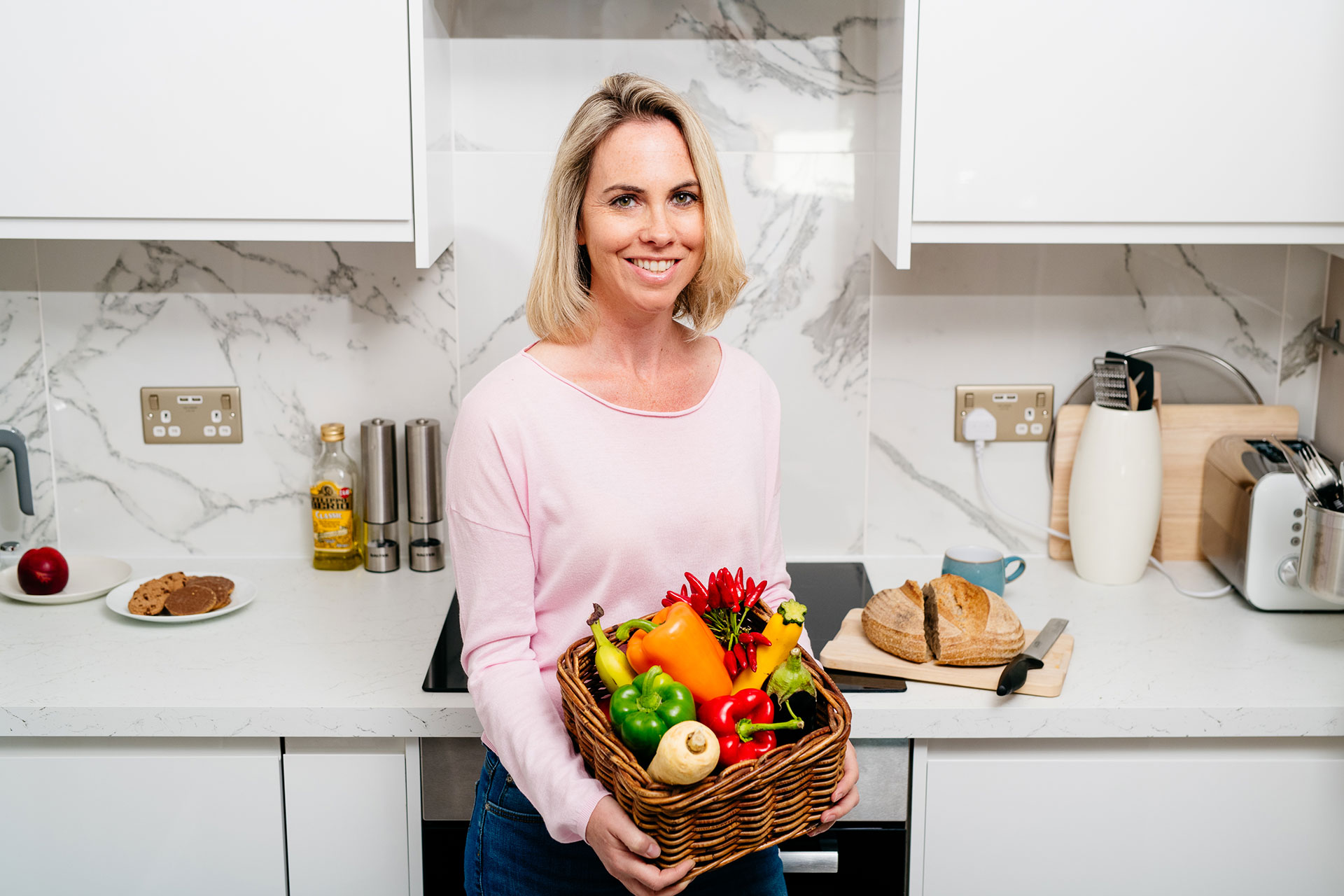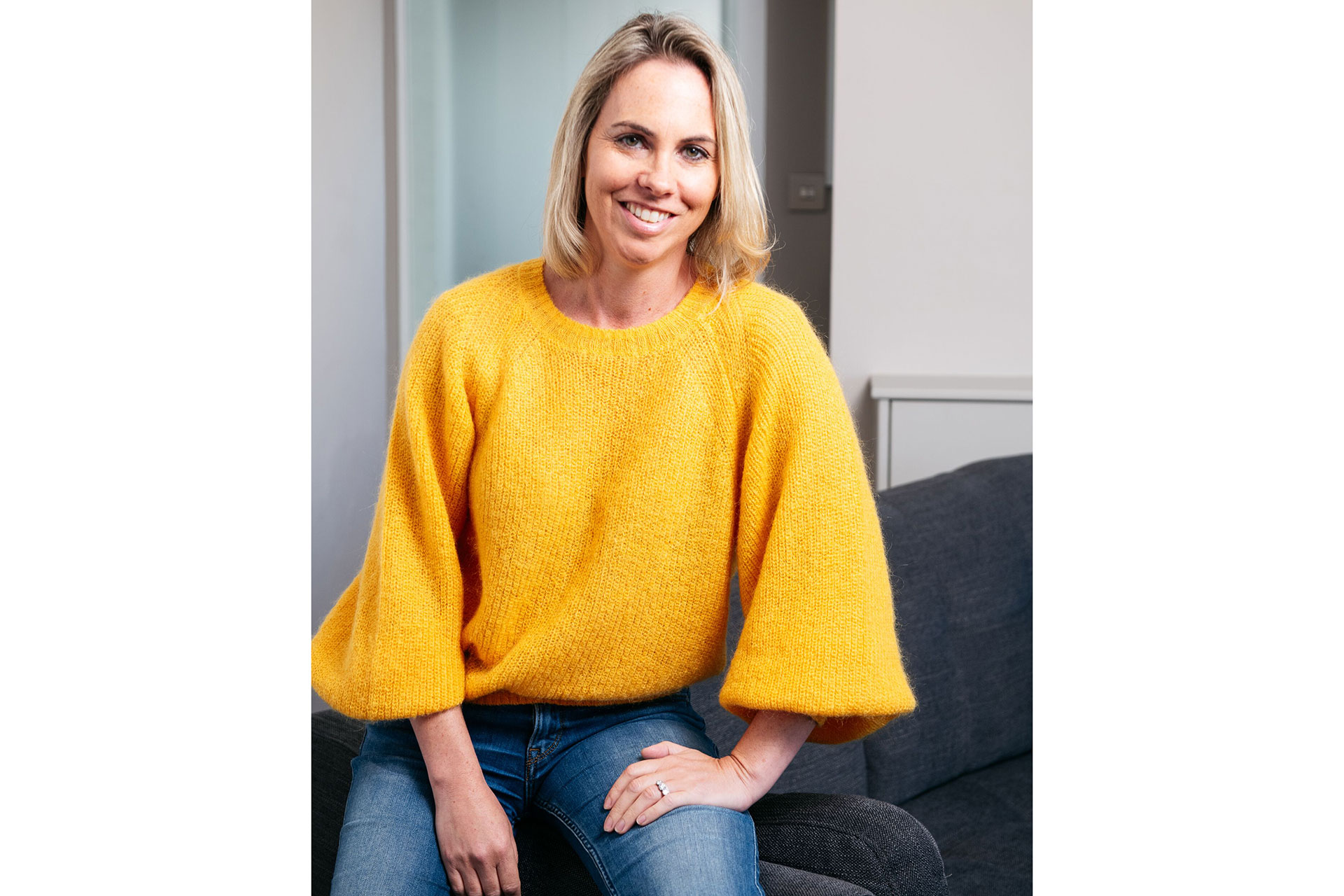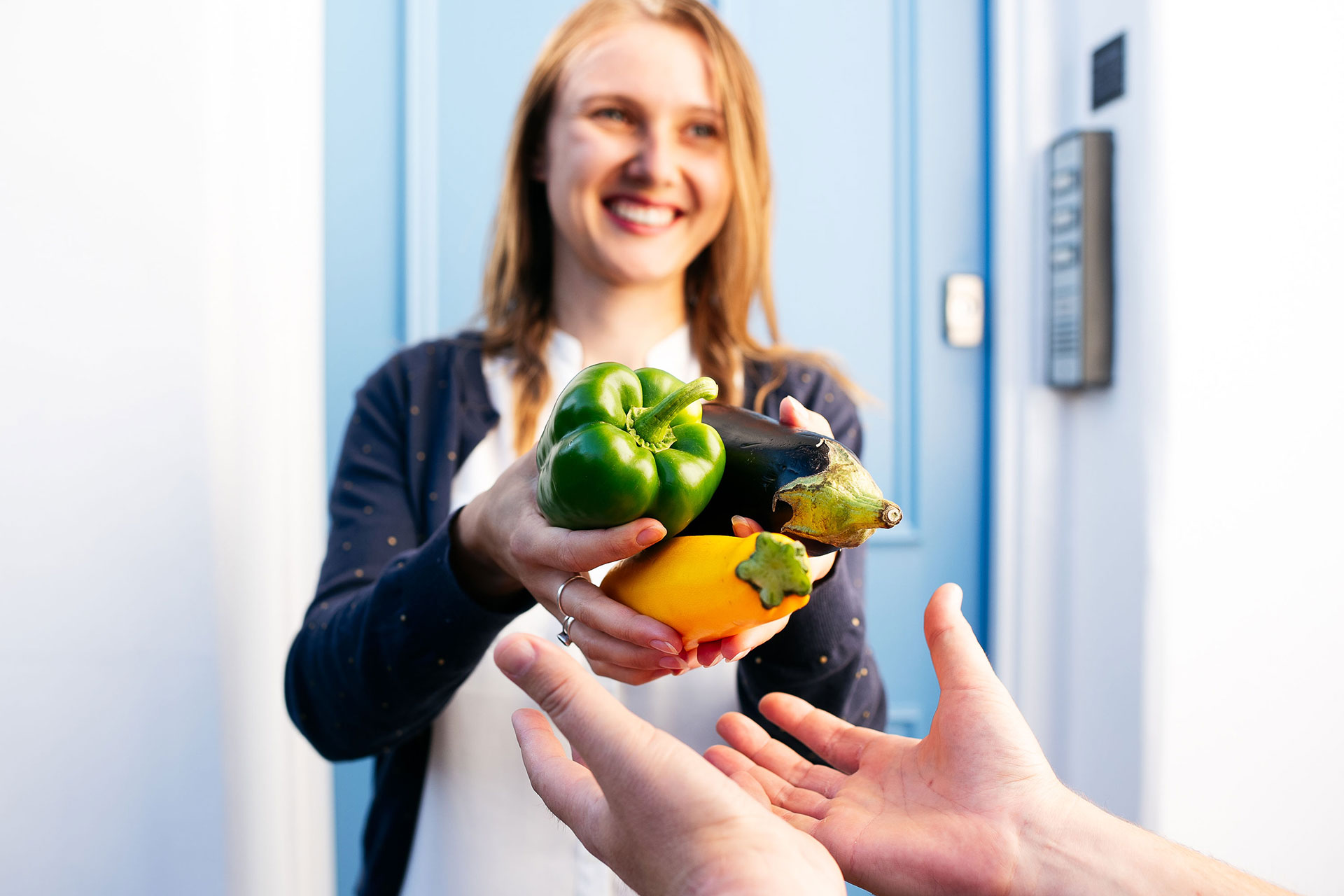Green Heroes: Tessa Cook, Founder of OLIO
By
4 years ago
"I’m a farmer’s daughter, and so have always hated throwing away good food."

The food sharing app that connects communities, believes that the world has finally woken up to the challenges we face but now it’s all about action

When was your green lightbulb moment?
I’m a farmer’s daughter, and so have always hated throwing away good food. This is because I know from first-hand experience just how much hard work goes into producing it! As a result, the lightbulb moment for OLIO came when I was moving country and found myself on moving day with some good food that we hadn’t managed to eat, but that I couldn’t bring myself to throw away. And so I set off on a bit of a wild goose chase to try and find someone to give it to, and I failed miserably. Through the whole process it seemed to me crazy that I should have to throw this food away when there were surely plenty of people within hundreds of metres of me who would love it, the problem was they just didn’t know about it. And so the idea of OLIO, a mobile app that connects neighbours to share food came about!
What green business practices are you most proud of?
The whole OLIO business model is green, and so I think we’re a really exciting example of what the future of business needs to look like. Our core proposition, for example, is all about connecting neighbours with each other so that surplus food and other household items can be given away, not thrown away. As a result of this we’re saving thousands of tonnes of carbon every month. We’re also a remote-first business which means we have no office, and as a digital business we have no manufacturing or supply chain. We’ve recently measured our carbon emissions and they offset just four per cent of all the carbon we’re saving each month, which means that OLIO is a massively carbon negative company!
What makes you feel positive about a sustainable future?
I’ve been working in the sustainability space for six years now, and for most of that time it’s been really hard to keep the faith as there has been so little action in the face of multiple rapidly accelerating crises – the climate crisis, the biodiversity crisis and the resource depletion crisis. However, I’m feeling a lot more positive since the start of this year as it seems that the world has finally woken up, and we’re now seeing a growing wave of positive actions from governments, businesses and concerned citizens too. The action still isn’t anywhere near enough yet, but it does feel like momentum is gathering and I’m hopeful that there’s a positive action tipping point just around the corner.
And what are the facts that make you fearful?
On an almost weekly basis I encounter some data around the climate crisis and biodiversity crisis that make me incredibly fearful. However, the fact that has kept me awake at night since I first heard about it a couple of years ago is the fact that Earth Overshoot Day now takes place each year in July – this year it was 29th July. And Earth Overshoot Day is the day in the year in which humanity has used up all the resources the earth can replenish in a year. So what this means is that every single thing, that every single one of us 7.5 billion people consume after 29th July this year is going to be net depletive to the planet. Collectively we’re living as if we have 1.75 planets – which clearly we don’t – and we’re on track to be consuming as if we have three planets by 2030 and five planets by 2050. That’s why I’m convinced that we have to completely reinvent not only how we consume, but our whole economy and economics too.
Who is your own green hero?
My first choice would be my amazing co-founder Saasha Celestial-One. We’ve been on this crazy rollercoaster ride for six years now and I know I couldn’t have done it without her. I also take enormous inspiration from everybody who uses OLIO because they’re demonstrating that individual action can be taken and it does count. After all, it was billions of small actions that got us into the climate crisis in the first place, so surely billions of small actions can help get us out?
Your favourite product– and tell us why we can feel good about buying it?
I know I’m biased, but I do think the OLIO app is absolutely amazing for giving away any spare food or other household items. I’m constantly amazed at just how much demand there is – half of all food added to the app is requested in less than 21 minutes, and half of all the non-food items are requested in under four hours! It really is quite a magical experience, made all the more special by the fact that you get to meet a neighbour too. Right now however, I’ve been using the ‘Made’ section of the OLIO app which is where you can buy homemade food and handmade crafts from neighbours. I have lots of summer birthdays coming up and so it’s a great place to buy really unique items, each made with love and its own backstory.

Can producing anything new really be called sustainable?
As a general principle, if you can reduce your consumption or re-use something that already exists, that’s almost always going to be the greener choice, rather than buying something new. And it’s amazing how easy it is to do this with apps such as OLIO, Depop, Thrift+ and others. However if you are going to buy something new then I always try and think ‘where’s this going to go when it’s dead’? And if it’s not easily repairable, or made of natural or recyclable materials then I would advise against buying it.
Name three other of your favourite brands who are doing the right thing and why you like them?
- Bower Collective – who provide sustainable, refillable personal care and household products to your home.
- Thrift+ – you can just send your clothes in one simple bag and then they’ll sell them to raise money for charity by selling them on your behalf.
- Riverford Organic – they’ve been pioneering organic farming for 30 years and are constantly innovating and trying to improve the sustainability of everything they do; for example they recently created a zero waste veg box which is a weekly staple for me.
Should we be green shaming the brands/companies who are doing nothing to change their ways?
I’m a big believer in the power of customer’s using their voices to demand that businesses do better. Certainly around the topic of food waste, we’ve found that businesses are much more willing to engage with our Food Waste Heroes Programme (where we have 30,000 trained volunteers who collect unsold food from local businesses at the end of the day and redistribute it to the local community via the OLIO app) when under pressure from employees and customers. I also think government has a big role to play here too, because if businesses legally had to publish their waste figures for example, it would transform behaviour almost overnight.
What are the biggest challenges in running a sustainable business?
I think the two biggest challenges are getting access to capital – a lot of investors still don’t understand the idea of doing well and doing good at the same time – and also accelerating consumer behaviour change. At OLIO for example, our number one challenge is encouraging more people to list their spare.
What advice can you give to other businesses who are wanting to do better?
So many suggestions! However the first three things I’d recommend are:
- Start by reading Naomi Klein’s book This Changes Everything: Capitalism vs the Climate and Paul Gilding’s book The Great Disruption. You won’t fail to be galvanised to take action.
- Review your company values and KPIs to ensure that sustainability is baked into them.
- Recognise that it’s a journey and be very upfront with all your stakeholders about where you are on the journey, and avoid the temptation to ‘greenwash’ at all costs.
Will you sign up to going carbon neutral (or even negative) by 2050?
We’re really proud to have been a Founding member of Tech Zero, which is the tech industry’s taskforce to figure out how the industry can get to net zero as quickly as possible. As part of that membership we measured our carbon emissions and were thrilled to discover that we’re already very significantly carbon negative. I’d really encourage any tech company that hasn’t already to consider joining Tech Zero – it’s free and is a really supportive community, plus has a very handy toolkit to help you on your journey.
Three things we should all, as individuals, be doing to help in the climate change fight?
- Stop wasting food – if it were to be a country, food waste would be the third largest source of greenhouse gas emissions after the USA and China, and in the UK, half of all food waste takes place in the home.
- Try and buy second hand and sustainable products and services wherever possible – over 60 per cent of all greenhouse gas emissions are directly related to household consumption.
- Check out the Goals section in the OLIO app which provides over 100 simple swaps that you can make to lead a more sustainable life.
To find out more, visit olioex.com
More Green Heroes…
Thrift+ Founder Joe Metcalfe / Vollebak Founders Nick and Steve Tidball



